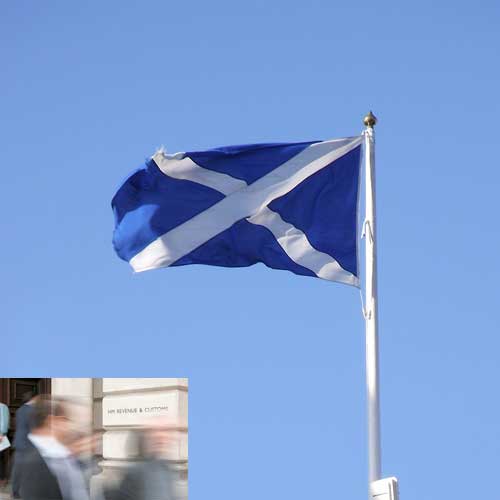We have now incorporated the draft Budget as presented by the Scottish Parliament in December into our tax calculators and tools. The Budget increased existing bands by inflation, however at the upper end of the pay scale added a new 'advanced' tax band and increased tax rates for 'top' earners by 1 percent.
Below are the new tax rate and allowances, which will apply from April 2024 for non-savings and non-dividend income for Scotland resident taxpayers:
| Gross Income | Income after Personal Allowance | Tax Band | Tax Rate |
|---|---|---|---|
| £12,570 - £14,876 | £0 - £2,306 | Starter | 19% |
| £14,877 - £26,561 | £2,307 - £13,991 | Basic | 20% |
| £26,562 - £43,662 | £13,992 - £31,092 | Intermediate | 21% |
| £43,663 - £75,000 | £31,093 - £62,430 | Higher | 42% |
| £75,001 - £125,140 | £62,431 - £125,140 | Advanced | 45% |
| £125,140 + | £125,140 + | Top | 48% |
Scottish taxpayers, like previous years, will pay higher rate taxes at an earlier threshold than the rest of the UK - but now with an additional advanced rate once gross income exceeds £75,000 - which is around the top 93rd percentile of all incomes.
The now six band progressive tax system for Scotland favours those on lower and lower-middle incomes compared to the UK but leaves higher earners worse off compared to the rest of the UK.
The draft Scottish Budget is yet to pass Parliament and receive Royal Assent but this is likely before the end of this month.
The process of devolved taxes has been progressing since 2018 with Scotland the first to exercise its powers to set its own income tax rates. Wales is now also benefit to this ability but have opted to keep parity with the rest of the UK for 2024.


